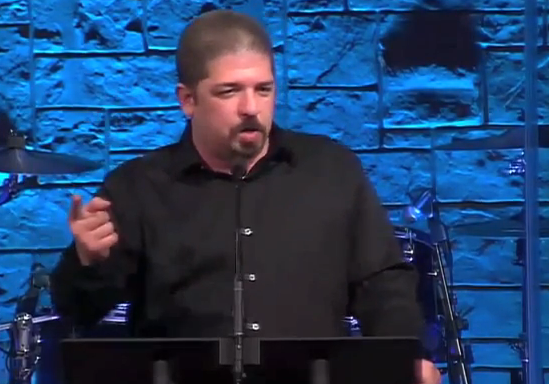Podcast: Play in new window | Download
Subscribe: Spotify | Email | RSS
 Rebuttals are the hardest parts of a debate – the hardest part to perform, and the hardest to listen to.
Rebuttals are the hardest parts of a debate – the hardest part to perform, and the hardest to listen to.
Opening and closing statements are basically pre-written, and in them, one talks about what one wants to talk about.
In a rebuttal, you are forced to think on your feet, on the spot, and find a way to knock down the arguments your opponent has just given in his opening statement – which you may have just heard for the first time. The best debaters scour heaven and earth to find everything the opponent’s ever said, so as to anticipate the opening statement, and pre-prepare for the rebuttal.
Here’s the best way you, the thinking person in the audience, can critically listen to this part.
- First, print my summary of the opening arguments. (See something missing or wrong? Add it, or correct it. Click once on the big image to remove it before printing.)
- Now, as you hear each rebuttal – first Rogers, then Lewis – mark the premises of their opponent’s argument which they are either denying (so, asserting to be false) or challenging (so, asserting as unknown or unproven).
- Having done that, try to list their reason(s) for challenging each premise.
If they give convincing reasons to doubt or deny at least one premise in each of their opponents’ argument, they’ve done their job. If they’ve only repeated their opening arguments, or talked about irrelevant things, they’ve failed.
How, in your view, do our debaters do here?
You can also listen to this episode on Stitcher or iTunes (please subscribe, rate, and review us in either or both – directions here). It is also available on YouTube (scroll down – you can subscribe here). If you would like to upload audio feedback for possible inclusion in a future episode of this podcast, put the audio file here.
You can support the trinities podcast by ordering anything through Amazon.com after clicking through one of our links. We get a small % of your purchase, even though your price is not increased. (If you see “trinities” in you url while at Amazon, then we’ll get it.)

Probably just an inconsistent Three self Trinitarian. Shadid Lewis when presenting his case was delivering what people(IMHO) naturally inclined too, that “Being” and “Person” can not be separated, and so he operates on the axiom.
Rogers, however, wants to split “Being” and “Person” in such a way that is very unnatural to our cognition. Furthermore, the way we naturally think about God is a “he” that possesses all the necessary attributes of Deity, Anthony appears to be trying to add one “he”(God the Son) and yet another “he”(God the Spirit) that also individually fully posses the attributes of Deity and have distinct identities from each other, to which I would say we would naturally recognize as in reality being polytheistic(at least in appearance).
That’s what a one-self trinitarian should say.
http://plato.stanford.edu/entries/trinity/#OneSel
But many three-self trinitarians say it too, which helps them to ignore and hide how poorly their theory fits with what most Christians believe.
http://plato.stanford.edu/entries/trinity/#20tCenThe
Is Mr. Rogers a one-self trinitarian? Honestly, I do not know.
Gotta love when trinitarians say that for God “He” is tripersonal. LOL.
Comments are closed.